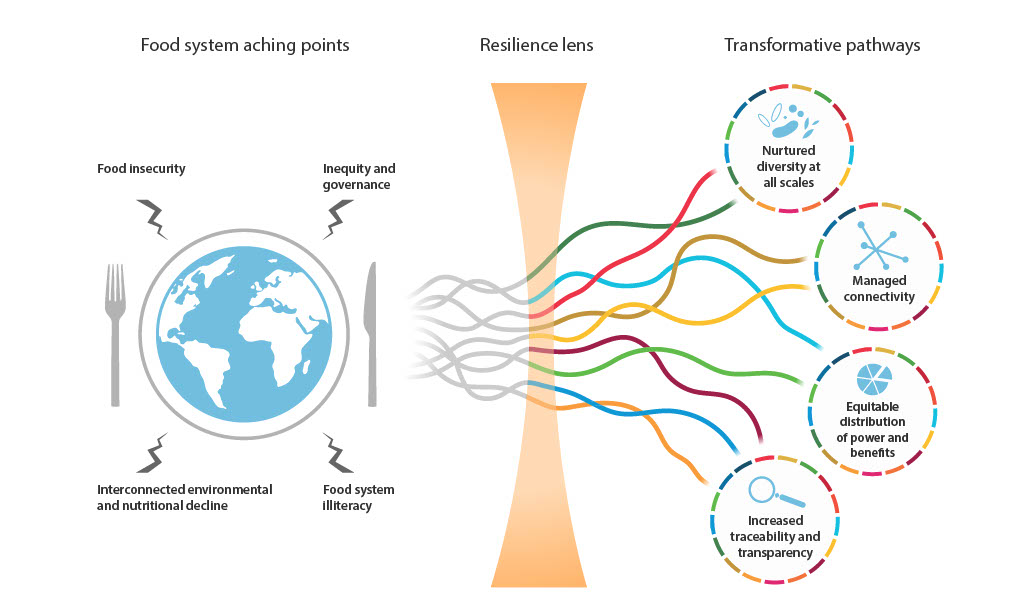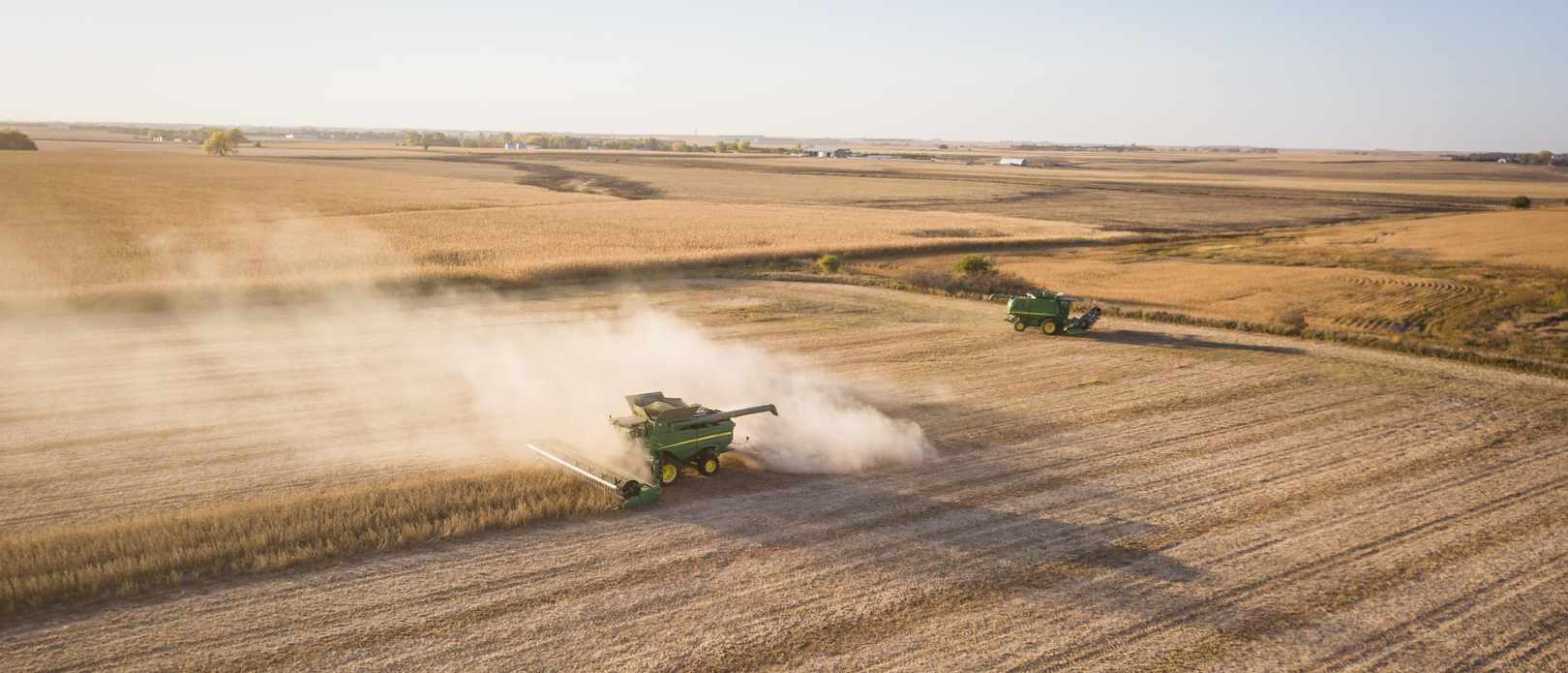FOOD SYSTEMS
Going beyond dichotomies of local versus global food systems
.jpg)
Food systems' main challenges cannot be solved by making them either more local or global. Photo: Nandhu Kumar & Tomas Hertogh via Unsplash.
Food systems are becoming increasingly stressed, but whether they are local or global is not the big issue
- Both local and global food systems suffer from similar challenges
- By only using a global or local perspective on the food system, these challenges cannot be tackled
- But resilience principles can provide promising pathways for transformation
A GLOBAL VILLAGE: For decades there have been debates about whether it is better for food to be locally produced and consumed, or globally. Recent crises such as the coronavirus pandemic and the war in Ukraine fueled the debate as some countries started to push hard towards more protectionism and self-sufficiency to the detriment of other countries that depend on the global food trade.
“The broader societal debate on how to solve food system challenges is often focused on two dichotomous perspectives and associated solutions: either more localized food systems or greater global coordination of food systems,” says centre researcher Amanda Wood, lead author of an article on the topic that was recently published in the journal Nature Food.
The local-global debate misses the point
This dichotomy is not helpful, she and her co-authors argue.
“Instead, we need to acknowledge that the drivers shaping food systems work across scales. In other words, while scale can exacerbate existing challenges it is not the main driver of the aching points addressed in the paper, according to co-author Cibele Queiroz, researcher at the centre and the Global Resilience Partnership.
Both local and global food systems suffer from similar challenges such as the degradation of ecosystems, food insecurity, negative health impacts and unfair distribution of power.
We need to acknowledge that the drivers shaping food systems work across scales.
Cibele Queiroz, co-author
To go beyond the dichotomy, the research team applied resilience principles to four prominent food system aching points:
- Food insecurity
- Inequity and governance
- Interconnected environmental and nutritional decline
- Food system illiteracy
Through the resilience lens
None of the four aching points can be solved by making food systems either more local or global. But resilience principles can provide promising pathways for transformation.

Four food system aching points and the transformative pathways that emerge when reframed through a resilience lens. Credit: Azote
Food insecurity is heavily impacted by trade. Trade can secure the availability and affordability of food, or create vulnerabilities. A balance between food systems that are connected, but not overly dependent on one another would be a resilience-inspired approach.
The interconnected environmental and nutritional decline can be tackled by increasing the diversity of crops, farming practices, livelihood options and food cultures according to the resilience lens used by the researchers.
To target inequity and governance in food systems, resilience principles advocate for broad participation and polycentric governance.
And food system illiteracy can be targeted with efforts to improve transparency and traceability across scales and education.
By only using a global or local perspective on the food system, these challenges cannot be tackled, argue the researchers. They conclude:
“Resilience-based transformative pathways can better equip us to achieve sustainable food systems for all, now and in the future.”
READ Reframing the local–global food systems debate through a resilience lens
The seven resilience principles applied to food systems
- Diversity is nurtured and targeted by management practices to ensure long-term stability by increasing response diversity to different disturbances and redundancy in key functions for dealing with ongoing change.
- Food systems are sufficiently, yet not overly, connected, to allow interactions between important actors and sources while minimizing the spread of disturbances.
- Slow variables and feedbacks are monitored regularly to inform adaptive management of food landscapes and systems.
- Food systems are inseparably integrated social-ecological systems characterized by non-linearity and uncertainty, where functioning ecosystems are the foundation of our food cultures, food systems economy (including food industry) and human health.
- Learning and experimentation are intrinsic to food systems management and governance, and a source of innovation and adaptive capacity.
- Broad participation is ensured in all sectors and scales of food systems.
- Polycentric governance is used to facilitate cross-scale learning and collective action towards sustainable food systems.
Source: Wood, A., et.al. 2023. Reframing the local–global food systems debate through a resilience lens. Nature Food.
Wood, A., Queiroz, C., Deutsch, L., González-Mon, B., Jonell, M., Pereira, L., Sinare, H., Svedin, U., Wassénius, E. 2023. Reframing the local–global food systems debate through a resilience lens. Nature Food.








